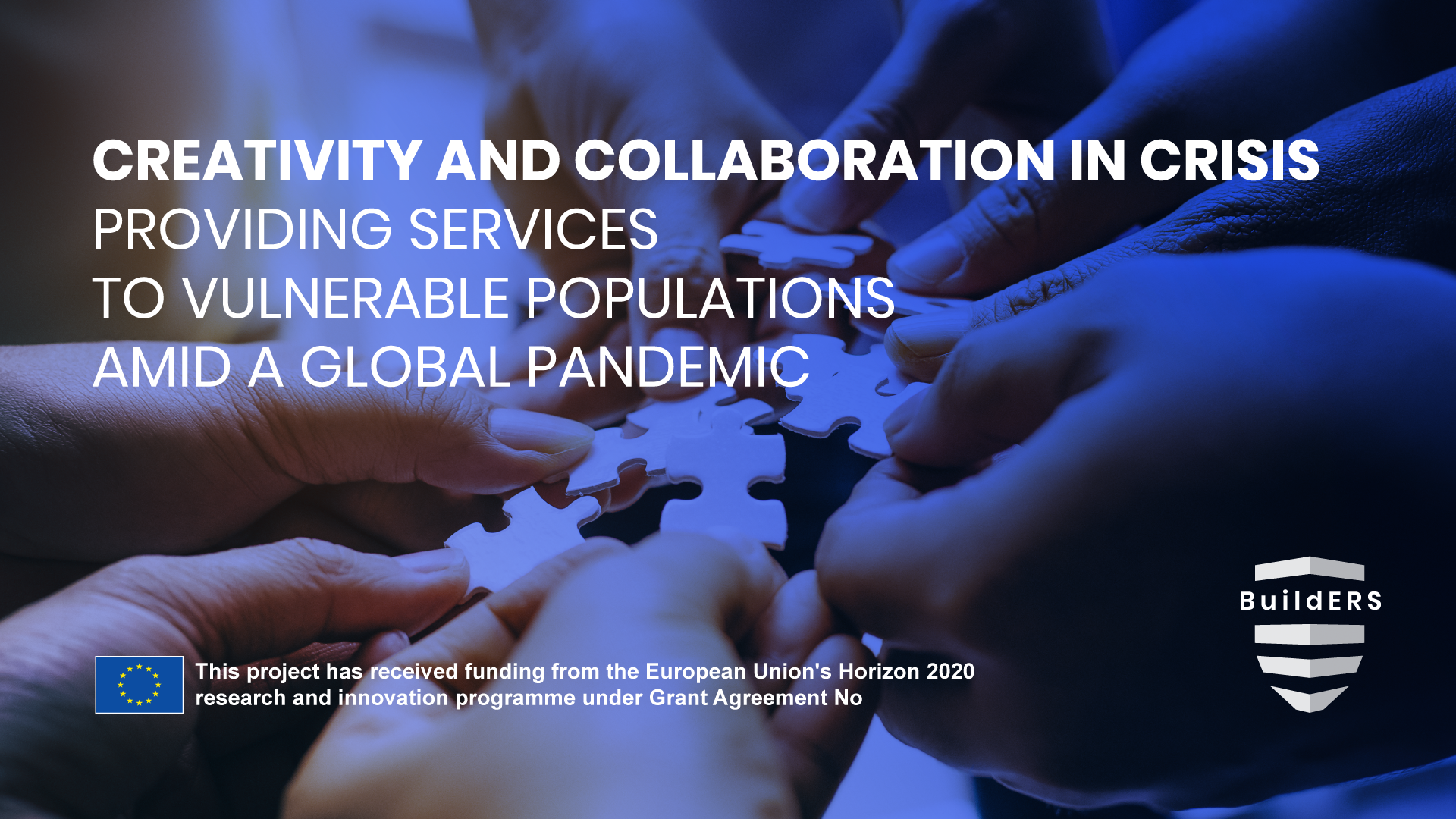The effects of the COVID-19 pandemic were unprecedented. For wellbeing and social service providers, these circumstances demanded the development and implementation of creative and collaborative strategies that would allow them to continue to provide services for vulnerable populations amid the crisis. This blog post will not only provide an overview of the strategies utilised by non-governmental organisations (NGOs) in Norway and Estonia but will also shine a light on the realities of the pandemic for certain segments of vulnerable populations.
In June of 2021, we organised online workshops with practitioners of NGOs in Norway and Estonia. The purpose of these events was to share the preliminary results of the BuildERS survey, which involved gathering responses from clients of social service providers regarding their experiences with disasters, their social support networks, and the services that they received during the pandemic. These results were shared with the hope that the perspectives of NGOs could be obtained, which would allow for a better understanding of the obstacles that they faced when attempting to provide services to their clients, the assistance that they received from local and national authorities, and if there were certain groups or populations that we difficult to reach.
In Tallinn, Estonia- where the workshop participants included 32 practitioners from long-term shelters, day centers, and night shelters- a higher workload, which was exacerbated by vague and often controversial guidelines from authorities, was noted. However, it was also mentioned by the workshop participants that cooperation between their organisations and the Estonian Health Board was immediately established during the ‘First Wave’, and that municipal authorities provided steady financing as well as personal protective equipment (PPE) to ensure that services could continue. Food banks and soup kitchens, however, were not as fortunate, as they were only partially financed by the city and found themselves providing services independently as well as relying on volunteers for assistance.
Nevertheless, it was noted by the workshop participants that cooperation with the Estonian Health Board and Tallinn Social Welfare and Health Care allowed organisations to be more prepared for the ‘Second Wave’. More specifically, practitioners felt more prepared in terms of routines and managing infection rates within facilities due to the issuing of guidelines that were more tailored to their work and the availability of contact persons in case advice was needed. The workshop participants also spoke of a plan that was put in place in cooperation with the municipal government to reorganise shelters in order to support homeless individuals who had tested positive for COVID-19. This allowed for NGOs to provide a space for these individuals to isolate while still being able to provide services to other clients.
In Norway, where the workshop participants included seven practitioners from a migration center, a food distribution center, and a center for drug and alcohol rehabilitation- the need for immediate improvisation in order to continue providing services was noted. For the food distribution center, this meant finding alternative ways of providing food to their clients, since the pandemic rendered their previous way of doing so impractical. For the migration center, the pandemic demanded the suspension of certain services (i.e. community-based self-help groups) and the digitalisation of others (i.e. case-working services for labour migrants). This not only proved to be a significant obstacle for providing services, but it also increased the burden on practitioners, as they felt that they were not able to do enough for clients who may have difficulties accessing digital services due to language barriers or lack of access to digital platforms.
However, the pandemic did provide an opportunity for increased collaboration. This not only included volunteer organizations in Oslo initiating meetings to synchronise their food distribution services, but also enhanced cooperation between the migration center and a network of NGOs dedicated to providing services to Roma communities, which involved meeting once a month to discuss issues related to COVID-19, vaccines, and discrimination. Practitioners from the migration center, however, still noted the need for increasing cooperation even more in times of crisis, as there is no space for ‘competing’ for funding among other organisations that provide similar services.
The participants of the workshop in Norway also emphasised the difficulties that certain segments of the population had- in terms of both attempting to access services and just simply enduring the pandemic. The migration center particularly noted that migrant communities were often targeted by harmful media portrayals and by continuous deportations that took place during the pandemic, which caused them to avoid seeking out services. Roma communities were also excluded, as individuals who had taken advantage of the government-funded flights to Romania at the beginning of the pandemic found it nearly impossible to re-enter Norway. Ultimately, however, accounts such as these not only provide insight into the realities of the pandemic for these populations, but it reveals gaps in critical infrastructure that serve to widen pre-existing inequalitie
Since the BuildERS project seeks to reduce vulnerabilities and increase resilience in European communities, perspectives gained from the workshops in Norway and Estonia are incredibly valuable and speak to the need for further investigation on the impacts of and the ways communities cope with disasters such as COVID-19. If you found this blog post interesting, please stay tuned as more workshops with NGOs will be taking place this Autumn.
Author: Alexandra OLSON (Salvation Army)
